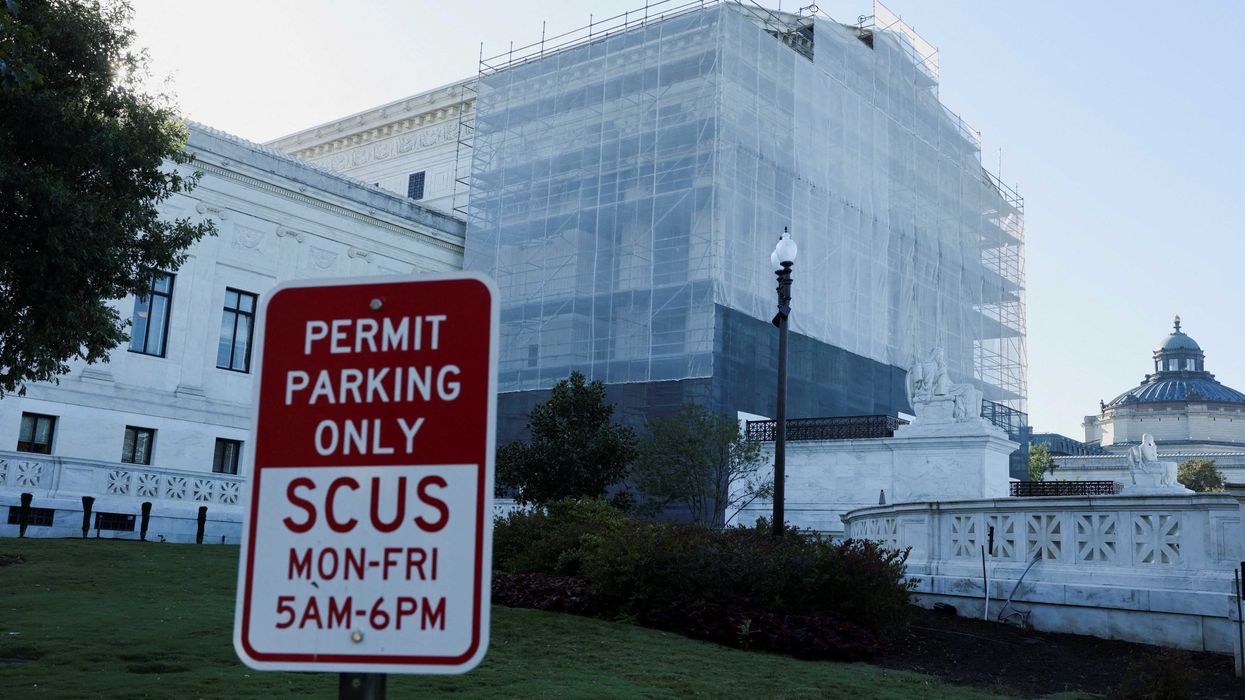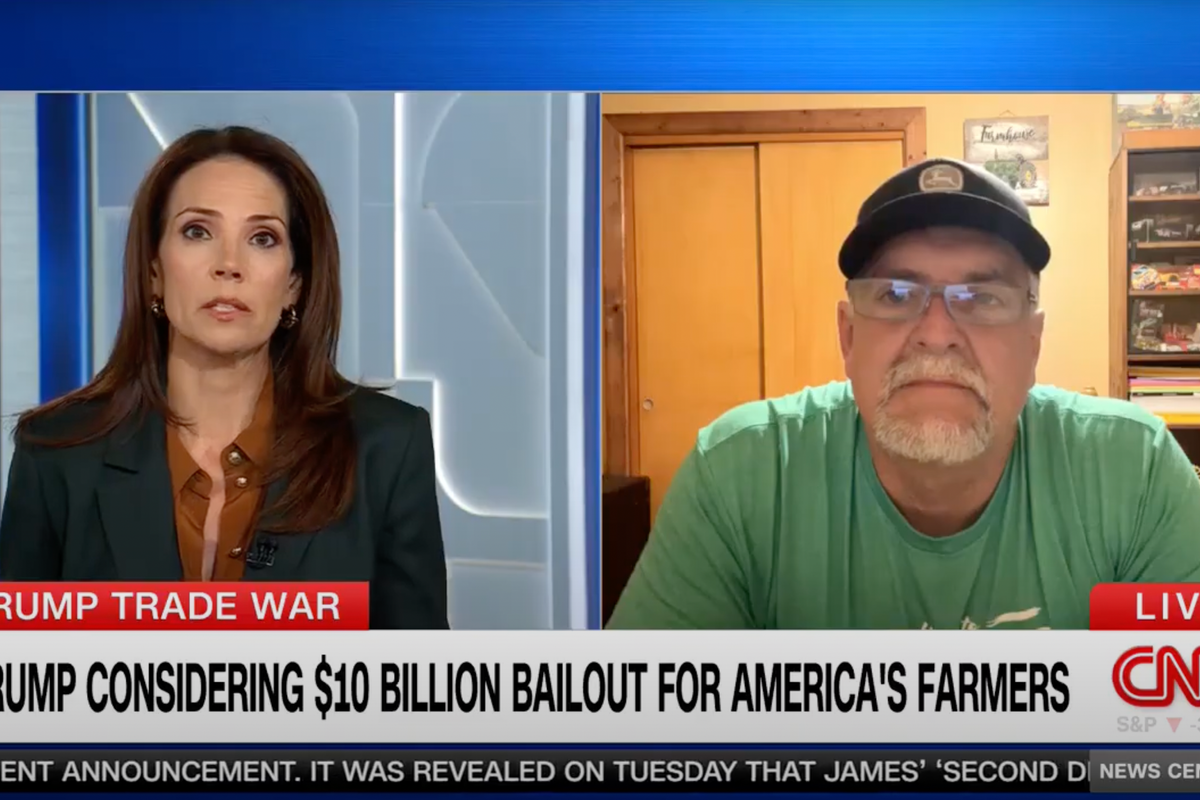Elon Musk in the Oval Office of the White House, on February 11, 2025. | Aaron Schwartz/CNP/Bloomberg via Getty
As Elon Musk has rampaged around the federal government for four weeks, canceling contracts and dismantling whole departments, he’s claimed all the actions of his Department of Government Efficiency (DOGE) were “maximally transparent.”
Yet there’s been nothing transparent about the details of Musk’s actual job in the administration, which has been a murky mystery that’s only deepened of late.
For some time after Trump was sworn in, it was unclear whether Musk even was officially working for the government. Two weeks in, the administration confirmed he was indeed a “special government employee,” but declined to give further details.
Late Monday, White House aide Joshua Fisher finally provided an answer of sorts. As part of court proceedings in a lawsuit, Fisher made a declaration about Musk’s role under penalty of perjury — though that answer was rather curious.
Fisher revealed that Musk is a White House senior adviser to the president with “no greater authority than other senior White House advisers.” That means, he continued, that “Musk has no actual or formal authority to make government decisions himself.” Musk can only “advise the President and communicate the President’s directives.”
But what about DOGE, which Trump established in the executive branch as the “US DOGE Service”? Well, Fisher said, Musk is not the head of the US DOGE Service, or even an employee of it. As for who does run it: the administration hasn’t said.
All this is, uh, strange. Trump announced in November that Musk would lead DOGE, and both Trump and Musk have certainly been presenting Musk as in charge of DOGE. But the administration is now claiming that, legally, on paper, he is not — even though he obviously is.
The “pay no attention to that billionaire behind the curtain” caginess likely is part of an effort to shield Musk from ethics and court scrutiny. It also serves to put his actions on firmer legal footing by claiming they fundamentally just amount to the president running the executive branch — through Musk, his instrument.
A defensible claim — and a dubious one
In the declaration, Fisher made two claims about Musk’s role — one that’s defensible, and one that seems far more dubious.
The first claim is that Musk is a White House adviser accountable to the president and acting with his authority. This is the defensible claim.
Every recent administration has had powerful White House aides who advise on policy and tell agencies what to do to some extent. Stephen Miller became informally known as the “president of immigration” in Trump’s first term, because he told all the immigration-related agencies what to do. Other White House aides, like the national security adviser, play roles that involve both coordination of various agencies and direct setting of policy. And the chief of staff effectively helps manage the executive branch as a whole.
Musk is essentially a very powerful White House adviser like these. He serves at the pleasure of the president and can be dismissed at any time. The reason he’s been so effective at getting various agencies to do what he wants is because people perceive him — correctly — as acting with Trump’s approval. (“Elon can’t do and won’t do anything without our approval,” Trump said two weeks ago. “And we’ll give him the approval where appropriate; where it’s not appropriate, we won’t.”)
As I’ve written, many of the policies advanced by DOGE are likely illegal, and there are questions about whether Musk’s appointment complies with ethics laws. But it seems extremely unlikely that the courts will declare it illegal for a president to have a very powerful White House adviser or to delegate substantial policymaking influence to such an adviser.
DOGE’s structure tries to make informal loyalty to Musk supersede loyalty to agencies
Fisher’s second claim — the much more questionable one — is that Musk does not head DOGE or even work for it. This seems like a claim that is true “on paper” but quite misleading in practice.
To understand how it can be true on paper, it’s worth understanding how DOGE works. There’s the US DOGE Service — a rebranding of the previous US Digital Service — in the Executive Office of the President. But there are also mini-DOGE teams being established inside every agency to go through their data, evaluate their personnel, and so on.
According to the executive order that set up this structure, those mini-DOGE teams must “coordinate” with the main DOGE, but they’re actually employees of their respective agencies, meaning they formally report upward in those agencies.
Informally, though, the mini-DOGE teams are being staffed with Musk allies who will want to work with him and do what he wants — even if he is not technically their boss.
The traditional saying about government is that “where you stand depends on where you sit” — meaning, once someone works for an agency, they tend to see the world through the eyes of that agency, and start representing its interests. The mini-DOGE team setup is essentially an attempt to make appointees’ informal loyalty to the richest man in the world supersede any institutional considerations.
So that is how Musk can “run DOGE” without actually officially heading DOGE. Technically, he’s just “advising” them. Practically, his advice is not really optional. But ultimately, his authority stems from the president, and can be revoked by him.
And yet there’s something rather brazen about suggesting to a judge that Musk does not head an operation he is obviously heading. Judge Tanya Chutkan, who is overseeing the lawsuit in question, has not sounded eager to rein in DOGE just yet. But presented with a declaration so seemingly incomplete and evasive, she may well have some more questions.




